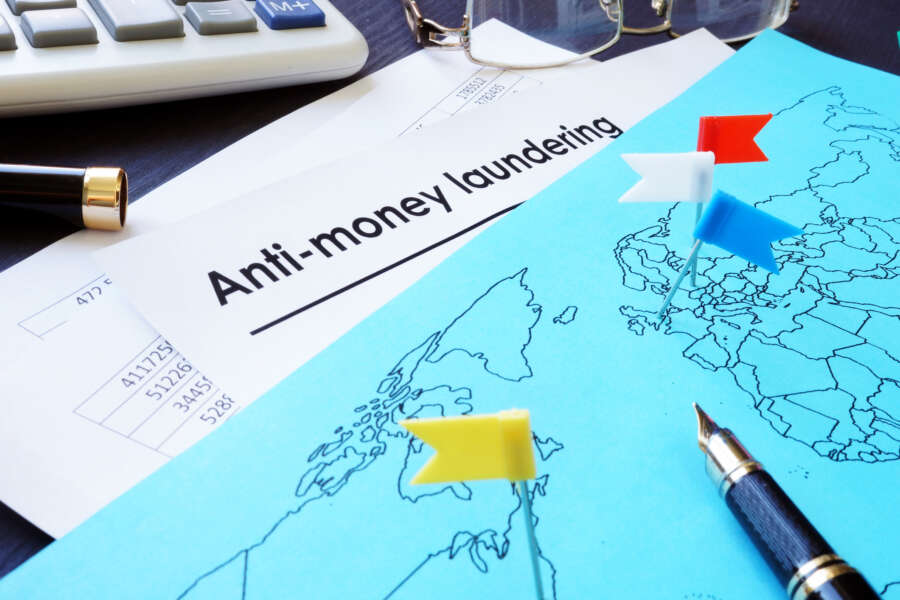

By Keith Berry, General Manager Know Your Customer Solutions, Moody’s Analytics
Identifying a company’s true ultimate beneficial owners (UBO) is crucial for compliance teams in the fight against financial crime. A UBO is defined as an individual who has ultimate control or ownership over a business.
There was a period not so long ago when there were no mandatory UBO disclosure laws. During this time, criminals could exploit complicated networks of shell companies to hide business ownership and use them as a vehicle to launder money. Since the introduction of mandatory UBO disclosure rulings, compliance teams have been able to use the large amounts of data available to identify UBOs more easily and tackle financial crime.
Transparency is vital for combating financial crime
Without the ability to identify UBOs accurately, it’s near impossible for compliance teams to understand whom they are engaging with and the scope of potential risks. To stay compliant with anti-money laundering (AML) regulations, compliance teams must assess the level of risk associated with an individual or entity it is working with or plans to work with – ascertaining who ultimately owns and controls a business within a network of customers and suppliers is essential in this process.
The relationship between the individual’s right to privacy and the need for corporate transparency requires consideration. An individual’s right to privacy is clearly important, but criminals do attempt to hide behind a screen of anonymity and privacy. Therefore, anything that can be done to help overcome the challenges facing compliance teams in terms of transparency should be considered. Otherwise, complicated and obfuscated corporate structures can be used to hide criminal activity.
Different global regulations concerning UBO discovery also affect compliance processes. Global jurisdictions have varying regulations concerning UBOs and the scope and veracity of the data that must be collected. For example, countries such as Italy and Spain have no national register for ultimate beneficial owners. In contrast, the UK has a public register that records the ultimate owners of a list of organizations, with details including companies, properties, land, and trust of UBOs. Corporations and their financial transactions are often not confined to just one country, and these variations in law can make the job of compliance teams more complicated.
Sanctions evasion and UBOs
The one-year anniversary of the start of the Russia-Ukraine conflict has just passed, and over the past year, the compliance landscape has changed significantly. Due to the implementation of global sanctions regimes in the wake of the conflict, compliance priorities have shifted, and the need for corporate transparency has increased. As a result, the examination of ownership and control has grown, with compliance teams investigating and identifying UBOs to understand the risk of sanctions exposure.
Transparency over corporate ownership is crucial in helping identify sanctioned individuals attempting to evade detection. In the early days of the Russia/Ukraine conflict, individuals subject to sanctions used the ploy of registering businesses in the names of their children or another family member to avoid sanctions for example. And investigations by compliance professionals have led to sanctioned individuals being identified as business owners in many companies across Europe.
The UK’s Register of Overseas Entities
The UK has recently expanded its AML measures by mandating UBOs of foreign businesses that own UK property are identified. Any overseas entity owning UK land was required to state the UBO on the Register of Overseas Entities by January 31, 2023. This was intended to identify bad actors using UK property ownership to launder money. The charity Transparency International UK researched this phenomenon and found £6.7 billion worth of UK properties were owned by overseas companies who hadn’t registered their UBO with Companies House. While it’s clear that not every one of the 52,000 properties concerned will be held by criminals or used for illicit purposes, many of them could be.
The new legislation carries fines and possible prison sentences for non-compliance. However, almost half the businesses required to register failed to do so by the January deadline. Many that did register listed individuals that are unlikely to be the real UBO.
Currently, UBO transparency is inconsistent, and as a result, compliance teams are having to work extremely hard to keep on top of the ever-evolving UBO measures across the world.
Maximize transparency
Over the last few years, the UK government’s attempt to support corporate transparency has increased. While the results so far haven’t been perfect, further steps are being taken to combat money laundering, sanctions evasion, and financial crime. Any attempt to identify bad actors, shielding behind complex webs of corporate entities and ownership could be helpful for compliance teams.
UBO transparency is a serious issue and challenge. Failure to support UBO discovery could lead to further financial crimes and more ways for criminals to launder money. Increasing transparency helps organizations understand risk and then take measures to protect themselves, the public, and the wider global economy.


